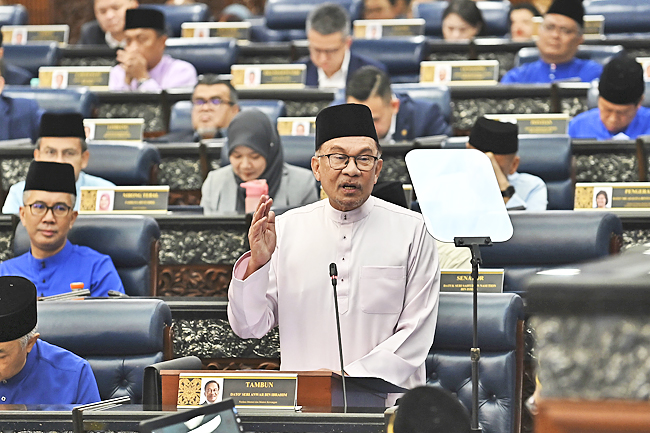KUALA LUMPUR (AFP) – Malaysia said it will impose new taxes and cut subsidies to boost the nation’s fiscal position as it faces headwinds from a sluggish global economy.
Prime Minister Anwar Ibrahim said his government will introduce a capital gains tax for the sale of unlisted shares at a rate of 10 per cent from March next year, and raise the levy on some sales and services – like logistics and karaoke venues – from six to eight per cent.
The measures come as Southeast Asia’s fifth largest economy faces anaemic global growth, elevated interest rates and a weak ringgit currency.
“As a measure to improve service quality and assistance to the people, the Unity Government is responsible for expanding the revenue base,” Anwar said as he unveiled the next financial year’s national budget in Parliament.
“Starting next year, some taxation reform measures will be implemented,” he added, including new taxes of five to 10 per cent on luxury watches and other high-value goods.

The prime minister, who is also the finance minister, revealed a leaner budget of MYR393.8 billion, compared to the MYR397.1 billion in the current fiscal year.
Some subsidies will be cut, such as for chicken and eggs, since prices have declined, Anwar said, but not other subsidies that would harm poor people if pulled, including for petrol, cooking oil and rice.
The budget for subsidies and social assistance for next year is expected to drop by more than a third, to MYR52.8 billion from the projected MYR81 billion for 2023.
Savings from subsidy cuts will be channelled to increased cash aid for poor people, from MYR8 billion to MYR10 billion, Anwar said.
Revenue collection will also be improved and corruption leakage plugged, he vowed.
Revenue next year is expected to jump to MYR307.6 billion from MYR303.2 billion.
Malaysia’s economy is expected to grow by around four per cent this year, down from a previous estimate of five per cent.
Forecast growth for next year is four to five per cent, according to the prime minister.



